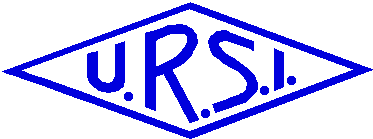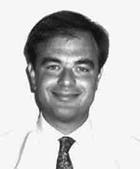
International Symposium on Signals, Systems, and Electronics
29 September-02 October 1998
Palazzo dei Congressi
PISA, Italy

CHAIRMAN'S MESSAGE
Prof. Marco LUISE
Welcome Message to ISSSE98
University of Pisa, Italy
ON behalf of the Organizing Committee, it is my pleasure and honor to
welcome you to the 1998 Edition of the URSI International Symposium on
Signals, Systems, and Electronics.
When I was a boy, I happened to find on the shelves of a bargain bookstore a
copy of Fred Hoyle's "The Black Cloud". It was an overly fascinating story
about an extraterrestrial intelligent being in the form of a huge interstellar
cloud coming in touch with the inhabitants of the Earth and eventually
succeeding to carry on a dialogue. What was to my eyes most fascinating
was the description of the alien intelligence: it was not a single entity,
rather it was a collection of minds linked by a tangle of very high-speed
communication links. The superior intellectual and ethical qualities of the
Black Cloud as a whole were just the result of this huge communication
capability between simpler minds.
I was struck by this novel and by the idea of a superior intelligence
stemming out of communications. I cannot say that the Black Cloud has
actually driven my professional choices. At least, not on a conscious level.
Was I struck so much just because I was already inclined towards
communications, or, was it maybe the other way round ? What I can say
today for sure, is that the Black Cloud represents my favourite paradigm for
the next century's universal radio wireless communication network which
is being designed nowadays. Many reliable forecasts predict that by the year
2010 the number of wireless communication links will exceed the number
of wiredę ones. In this count, developing countries might hopefully play a
fundamental role, since some nations will opt for deploying a wireless radio
network instead of a more costly fixed one. Worldwide compatibility will not
be an issue by that date, and today's bells and whistles of "anytime,
anywhere" will be just reality for everyone.
With this picture in mind, I was twice as happy when I was asked to act as the General Chairman of the fourth edition of the URSI International Symposium on Signals, Systems, and Electronics (ISSSE). Since its inception in 1913, the aim of URSI (Union Radio-Scientifique Internationale) has been the promotion of international cooperation within the field of Radio Sciences, which is pursued nowadays through the activity of ten Commissions. All applications of radio science are covered, ranging from medicine to astronomy, from metrology to communications, and so on. Considering the ever-growing relevance of telecommunications into everyday life, URSI decided in 1987 to initiate a series of triennial international symposia under the auspices of Commission C (Signals and Systems) and Commission D (Electronics and Photonics) to foster the exchange of experience between scientists and engineers working in those areas. The previous editions of ISSSE were held in 1989 in Erlangen, Germany, in 1992 in Paris, France, and in 1995 in S. Francisco, CA, USA. This fourth ISSSE was born with the technical co-sponsorship of three Technical Societies of the Institute of Electrical and Electronic Engineers (IEEE), namely, the Communication Society, the Microwave Theory & Techniques Society, and the Electron Devices Society. It has also benefited from the financial support of a number of sponsors which I gratefully acknowledge here. The Organizing Committee of ISSSE'98 has selected the main theme "From Waves to Silicon through DSP" to reflect the current trends in the design of radiocommunication terminals. The appearance and widespread diffusion of multimedia in the last few years placed new and challenging requirements on radiocommunication systems that have now to deal with broadband audio, data, graphics, and video. The synergy of algorithms and components has revealed the cornerstone upon which modern radiocommunication equipment is based.
A warm thanks goes to our authors who has enthusiastically responded to the call, as well as to the components of the Technical Program Committee who have established the program.
Welcome in Pisa, I hope you'll enjoy attending ISSSE'98 as much as we enjoyed organizing it.
 Back to the Conference Home Page
Back to the Conference Home Page